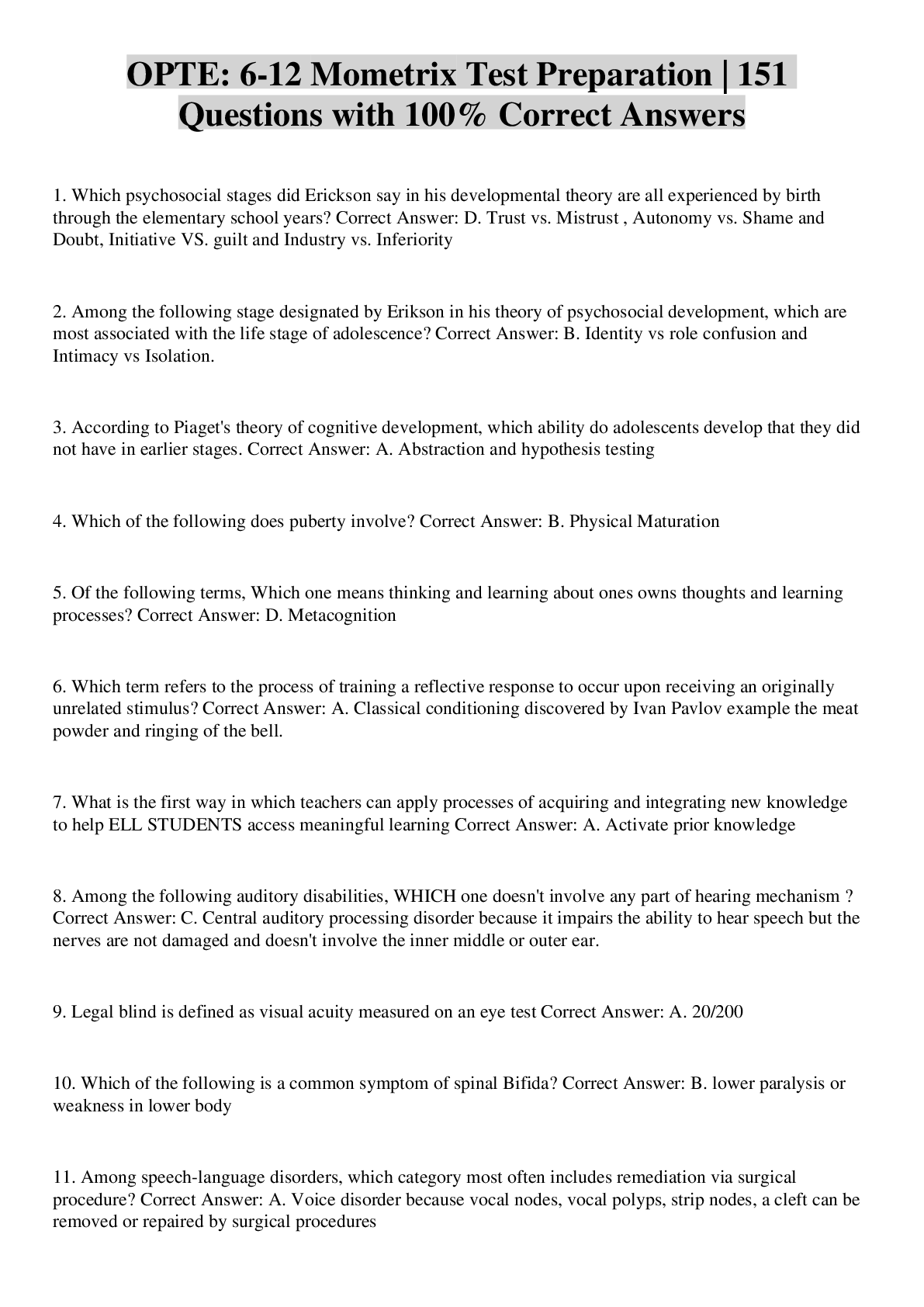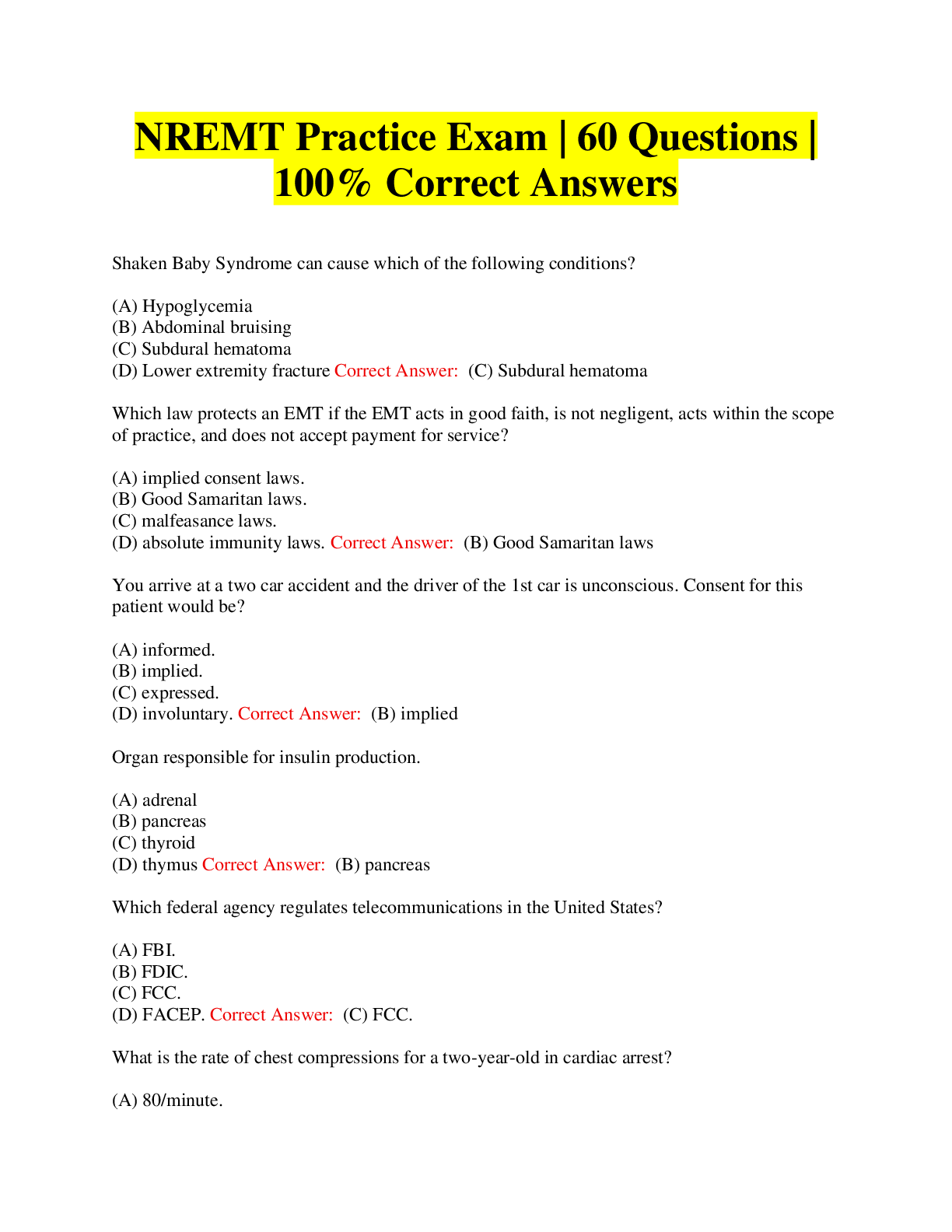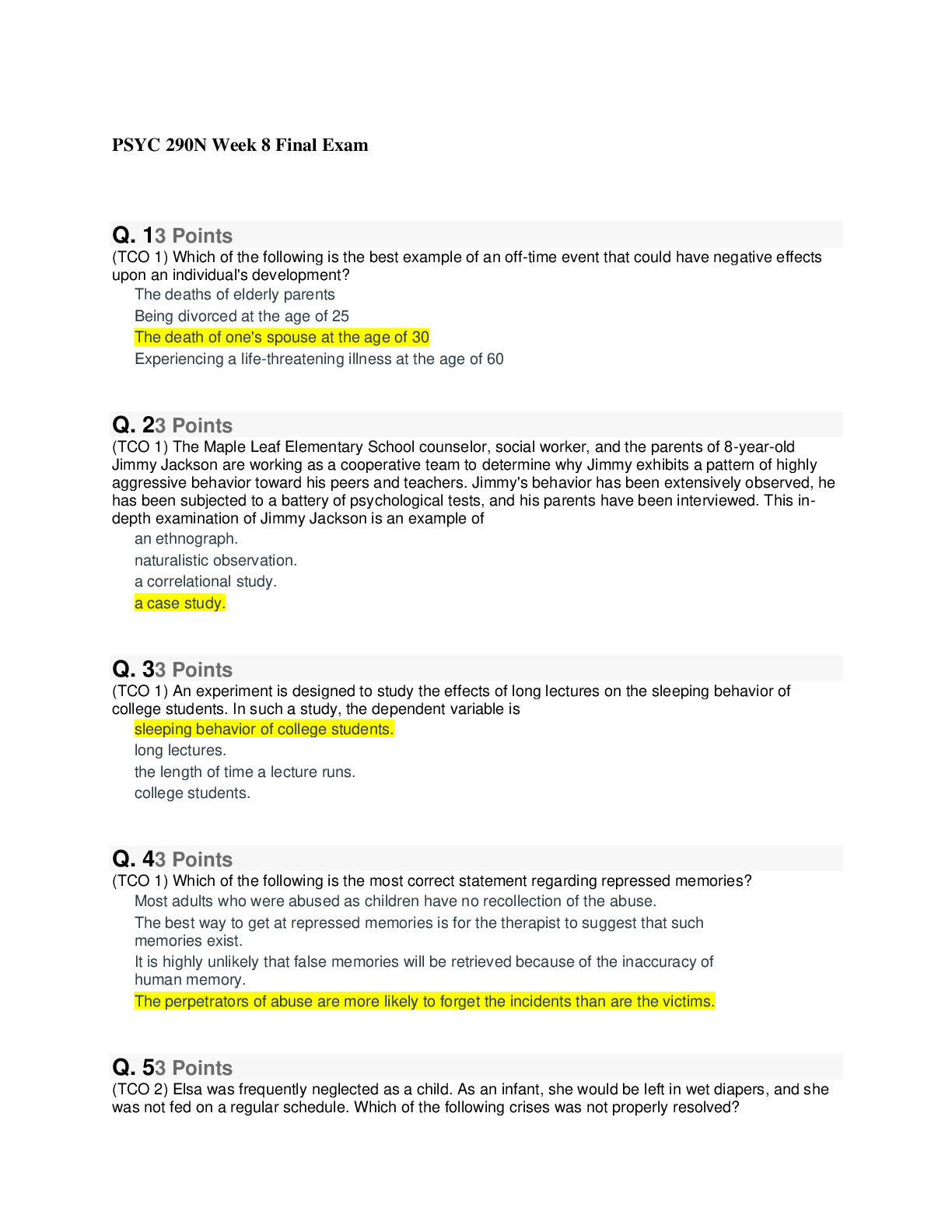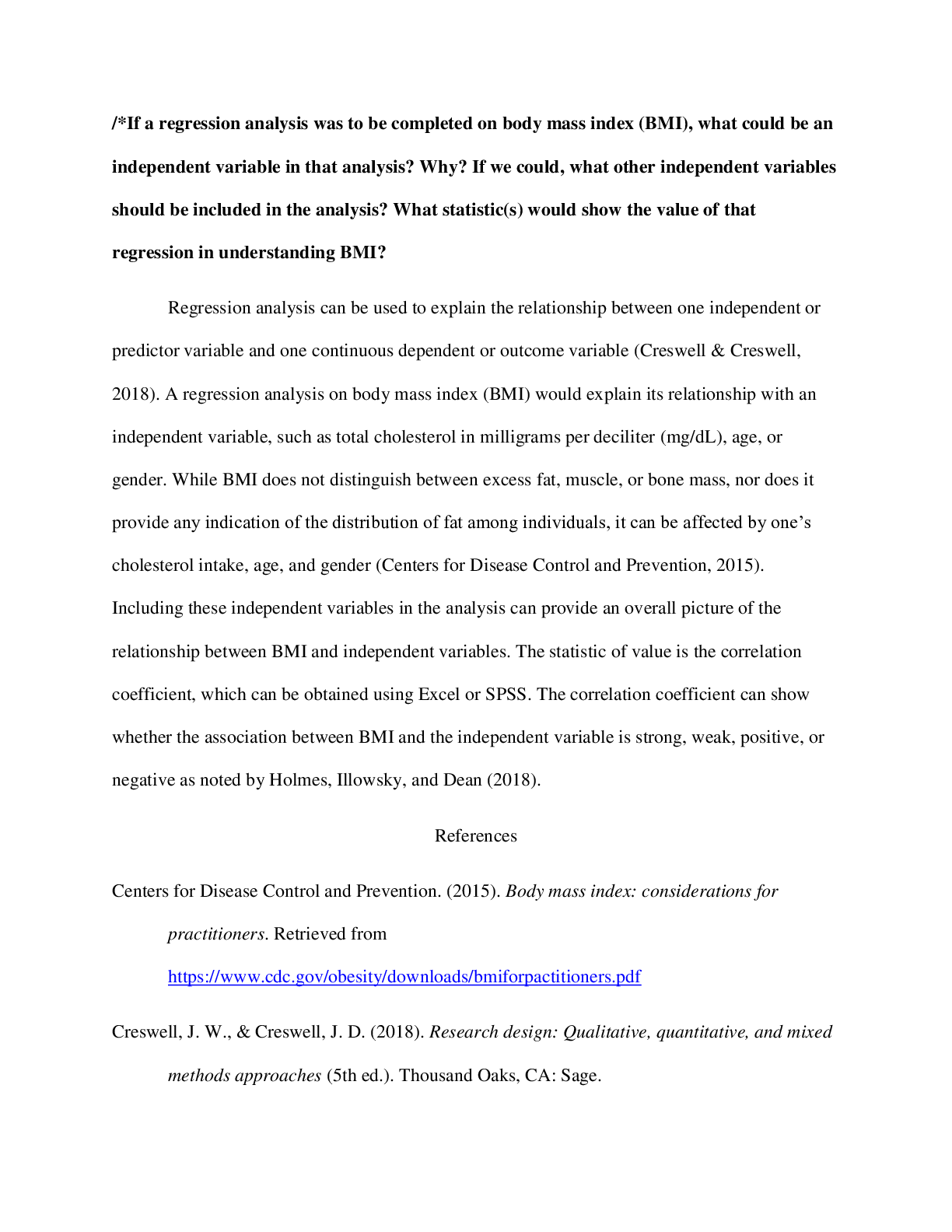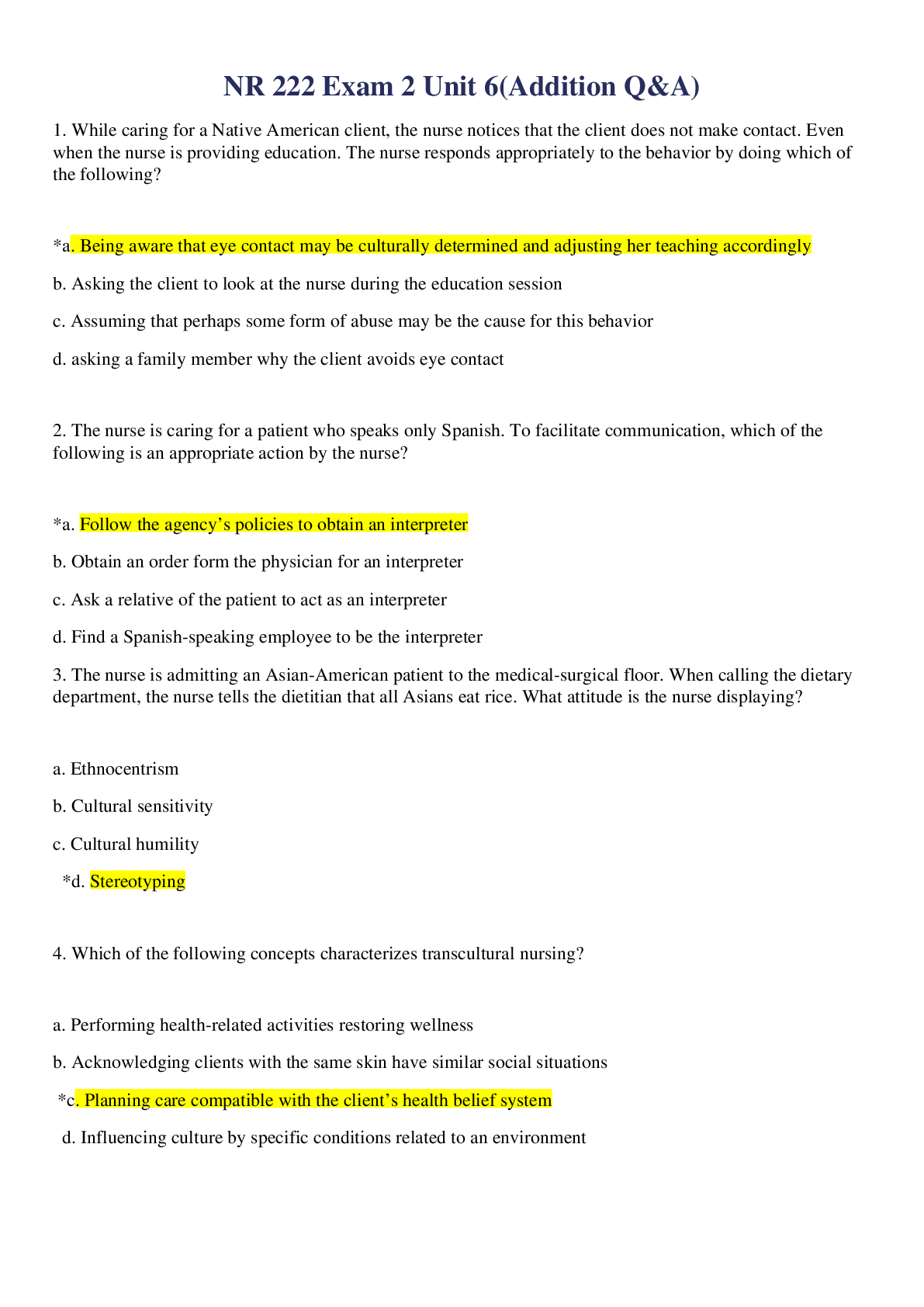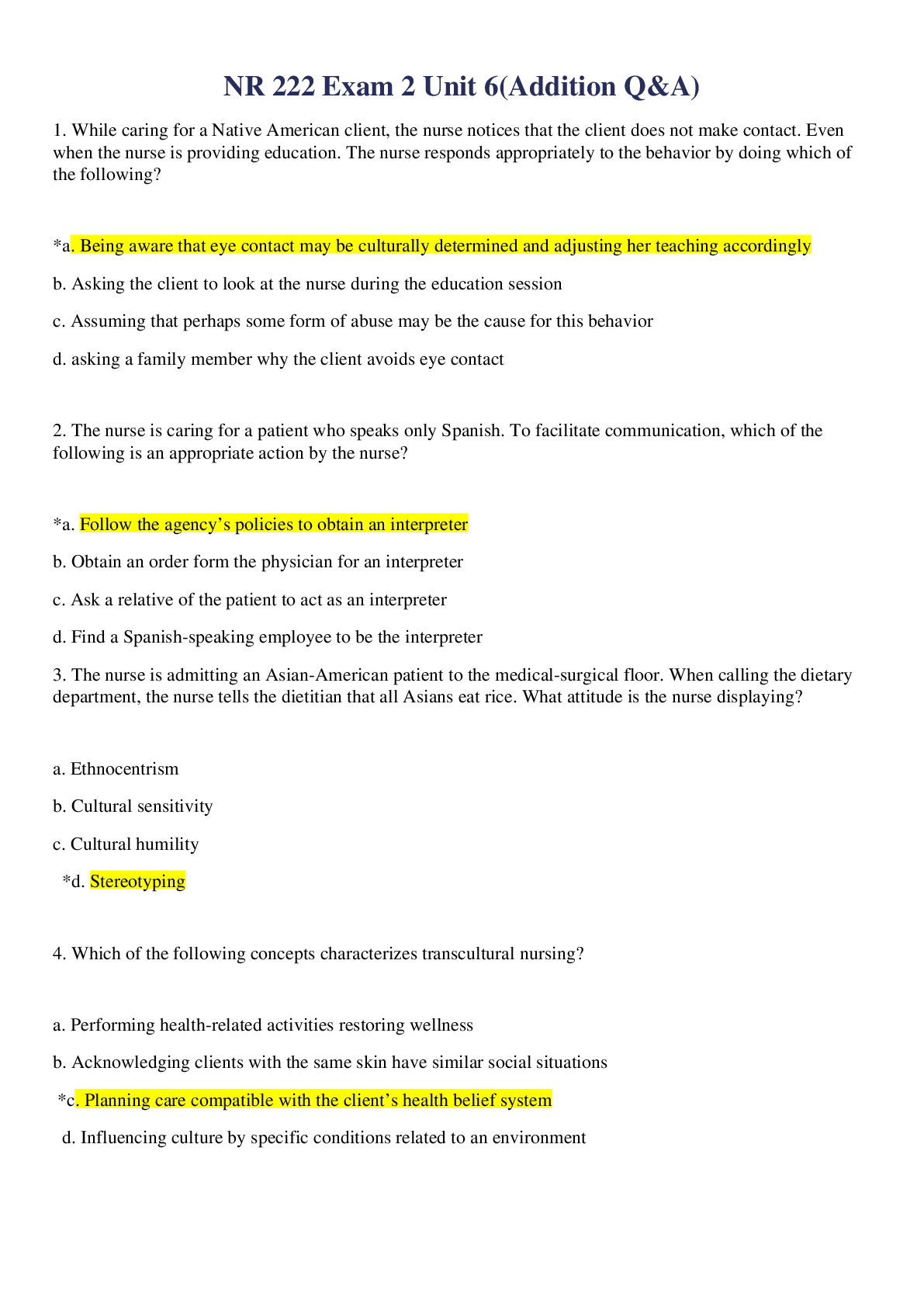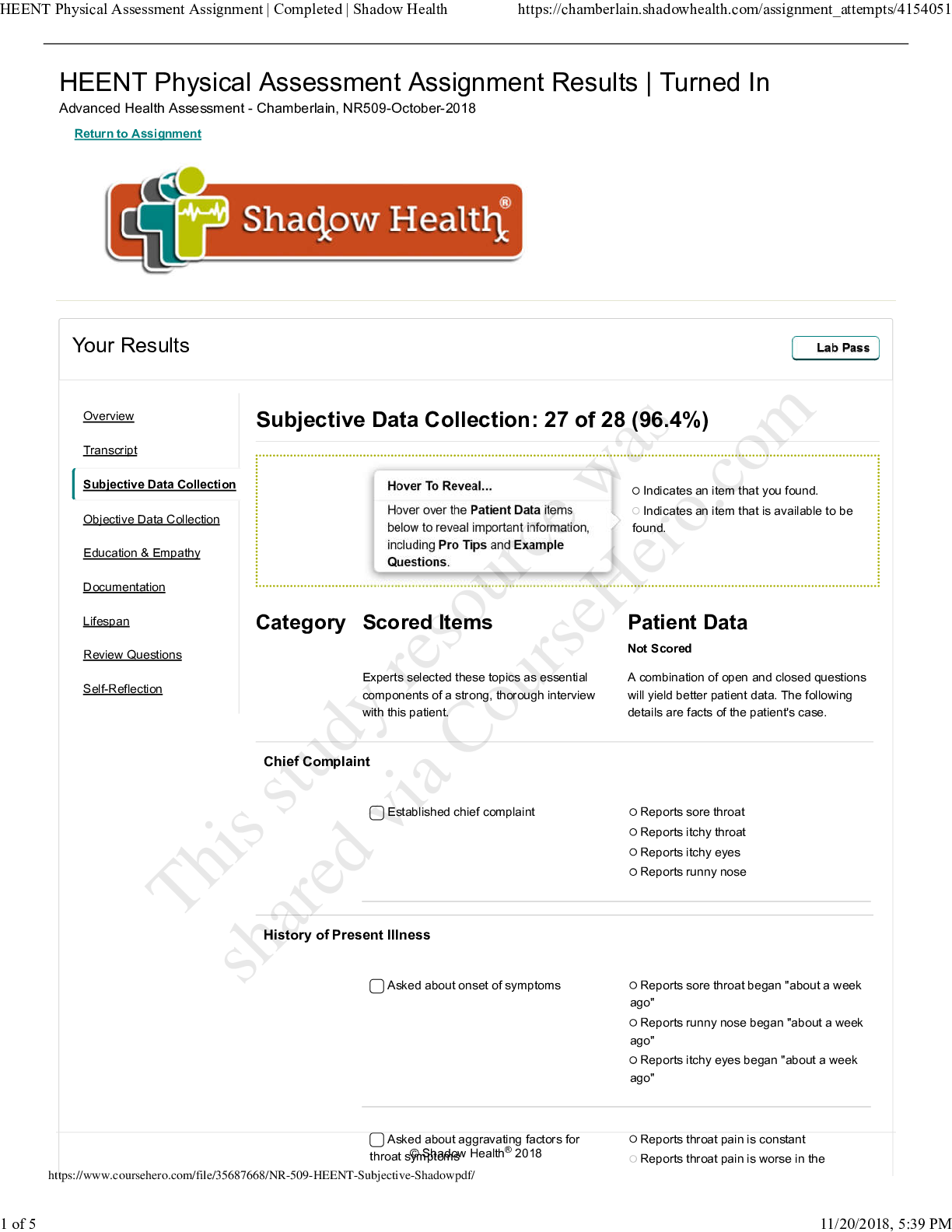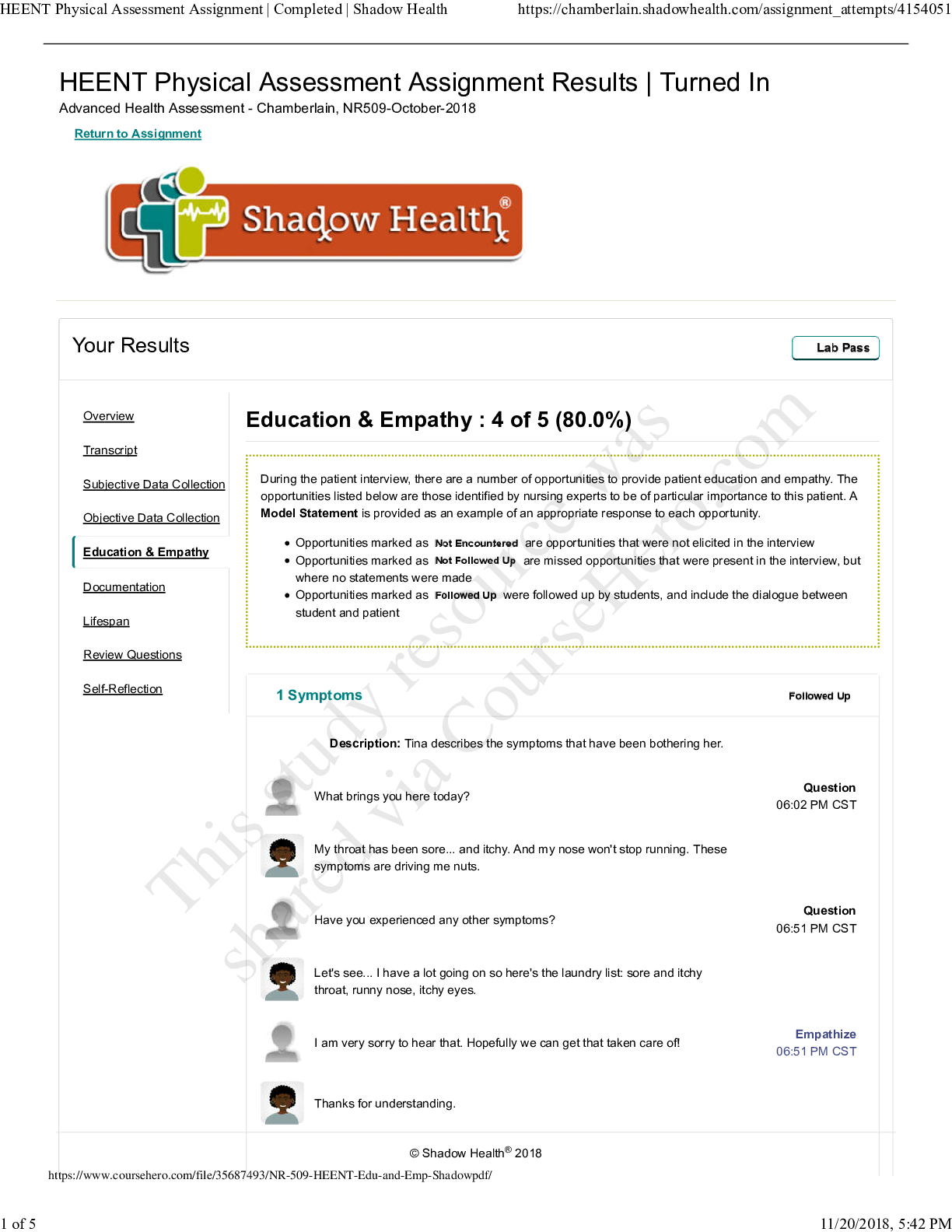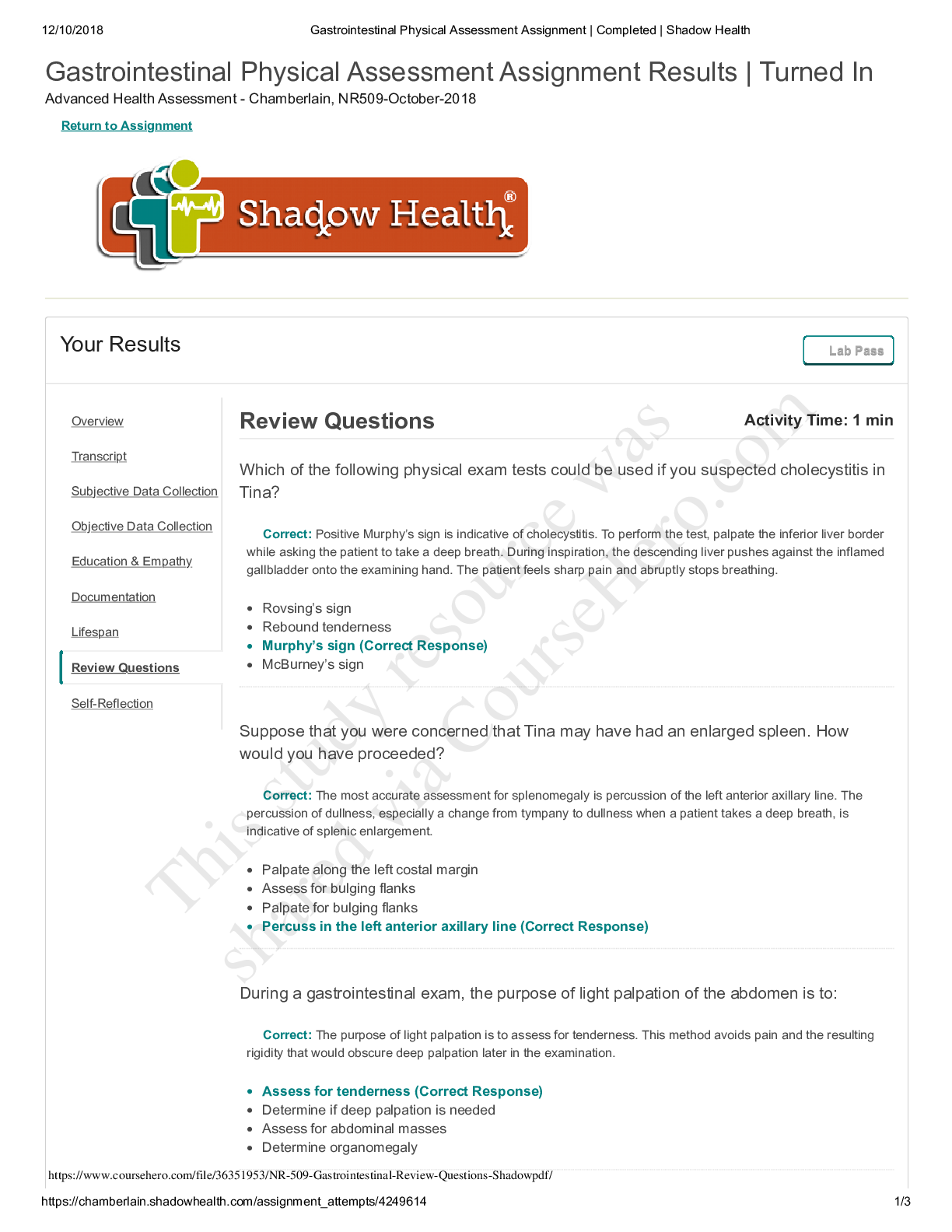Health Care > EXAM > NR 500 Week 1 Discussion: The Value of a Master’s-Prepared Nurse-Chamberlain College Of Nursing: G (All)
NR 500 Week 1 Discussion: The Value of a Master’s-Prepared Nurse-Chamberlain College Of Nursing: GRADED A
Document Content and Description Below
NR 500 Week 1 Discussion: The Value of a Master’s-Prepared Nurse-Chamberlain College Of Nursing: GRADED A Week 1: The Value of a Master's-Prepared Nurse Consider the current healthcare d... elivery models and practice settings. Reflect on how nursing practice is transforming in response to the current demands of the healthcare system and answer one of the following questions: What differentiates the practice of a master's-prepared nurse compared to that of a baccalaureate- prepared nurse? What is the value of a master's degree in nursing? What do you consider to be the most essential professional competency for a master's-prepared nurse practicing in the 21st century? Refer to AACN Essentials, NLN competencies, and CCN Nursing Conceptual Framework. Use at least one outside scholarly article to support your position. Provide an example to illustrate an application to professional practice. Week one What is the value of a master's degree in nursing? The master’s degree in nursing brings the register nurse an extra understanding of assessments, interventions, and evaluations, plan of care and identification of any disease or problems. Also the master prepared nurses to have a better critical thinking and to make better clinical decisions; as Cotterill-Walker (2012) stated, the master degree increase the nurse self-assurance and the ability to think critically under pressure, to improve the communication with interdisciplinary teams members. According to the Chamberlain’s conceptual framework of nursing, a master degree will provide skills in leadership, research, education, organizational and practice settings, which all combine bring a better outcomes for the patients, as well don’t limit the practice to one role, and get the opportunity to get around until you find your path. The master degree also improve the leadership skills that as register nurse in the floor is kind of hard to obtain, as well improve the communication styles need it to create a plan of care, or plan for the hospital or any other plan that will be beneficial for the institution that the nurse is in. And provides the foundation need it for the doctoral study. As the American Association of colleges of nursing stated; the master‘s education will and must prepared the graduate to “lead change to improve quality outcomes, advance a culture of excellence through lifelong learning, build and lead collaborative inter-professional care teams, navigate and integrate care services across the healthcare system, design innovative nursing practices, and translate evidence into practice”. At the end of the master program we will be able to exceed the expectations of the real world, be able to understand the cultures and to help them with the respect of theirs believes, a med surgical floor nurse faced so many misunderstanding of cultures; the whys some population doesn’t want to follow the plan of care, this subject is essential in developing an interventions for them and to collaborate with the medical team to bring the best quality of care to the patients in all the concepts. . American Association of Colleges of Nursing. (2011). The essentials of master's education in nursing.Washington, DC.Retrieved from http://www.aacn.nche.edu/education- resources/MastersEssentials11.pdf%20 Chamberlain College of Nursing. (2016). Chamberlain college of nursing masters of science in nursing conceptual framework. Retrieved from https://www.chamberlain.edu/docs/default- source/academics-admissions/catalog.pdf Cotterill-Walker, S. M. (2012). Where is the evidence that master's level nursing education makes a difference to patient care? A literature review. Nurse Education Today, 32(1), 57-64. doi:10.1016/j.nedt.2011.02.001 Reply to the peer. The NLN says that the master level nurse graduate has a “fuller understanding of the discipline of nursing in order to engage in higher level practice and leadership in a variety of settings and commit to lifelong learning” (NLN, 2014). This takes me to really admired teaching hospitals, as you said Jessica, the evidence-based practice is an extra support to learn and update yourself in the new technology out in the market. Evidence-based practice (EBP) is not new for the society is just the new way of calling something that it has been in practice since Florence Nightingale; she started by implementing ways of care to the patient back then. Evidence-based practice (EBP) is the conscientious and judicious use of current best evidence in conjunction with clinical expertise and patient values to guide health care decisions. (Cook D 1998). At the hospital that I work, we also have modules that we must complete every 6 months, we are able to see videos, read, and then answers some questions, those modules have the changes that will be implemented in the practice. And as a master prepared nurses, we need to obtain the knowledge and keep nurturing it to help and improve the care of the patient. References Cook D. Evidence-based critical care medicine: a potential tool for change. New Horiz. 1998;6(1):20–5. [PubMed] National League for nursing (NLN). (2014). NLN Practical/Vocational Nursing Curriculum Framework. Retrieved from http://www.nln.org/docs/default-source/default-document-library/nln-practical-nursing- framework-guidelines-final.pdf?sfvrsn=0 Video. Leading Change: How Nursing Can Shape Health Care Policy https://www.youtube.com/watch?v= F_osVYCa8 (Links to an external site.)Links to an external site. Were you aware of how advanced practice nurses can impact policy? I was not aware 100% of how nursing can impact the policy, I had an idea, that as a nurse, you can start being part of the committee of you floor, as Sally Dreslin, RN,MS stated in the video, you can start small, you can start in your community and in your hospital by sharing ideas with your peers. After the video, I realized that we are the largest groups that engage continuously, with the care of the patients. And we are advocates, so we need to work together with the health care policies that will benefit us and the patients. Nurses, we are the bridge between the patients and the doctors or other healthcare team member, that place us in the role of helping the patient to get a better understanding of the plan, or conditions, or diagnosis that will be implement in their care. According to the Institute of Medicine’s 2010, The Future of Nursing: Leading Change, Advancing Health report that nurses have the ability to play a fundamental role in the transform [Show More]
Last updated: 2 years ago
Preview 1 out of 2 pages

Buy this document to get the full access instantly
Instant Download Access after purchase
Buy NowInstant download
We Accept:

Reviews( 0 )
$8.00
Can't find what you want? Try our AI powered Search
Document information
Connected school, study & course
About the document
Uploaded On
Sep 14, 2022
Number of pages
2
Written in
Additional information
This document has been written for:
Uploaded
Sep 14, 2022
Downloads
0
Views
43

